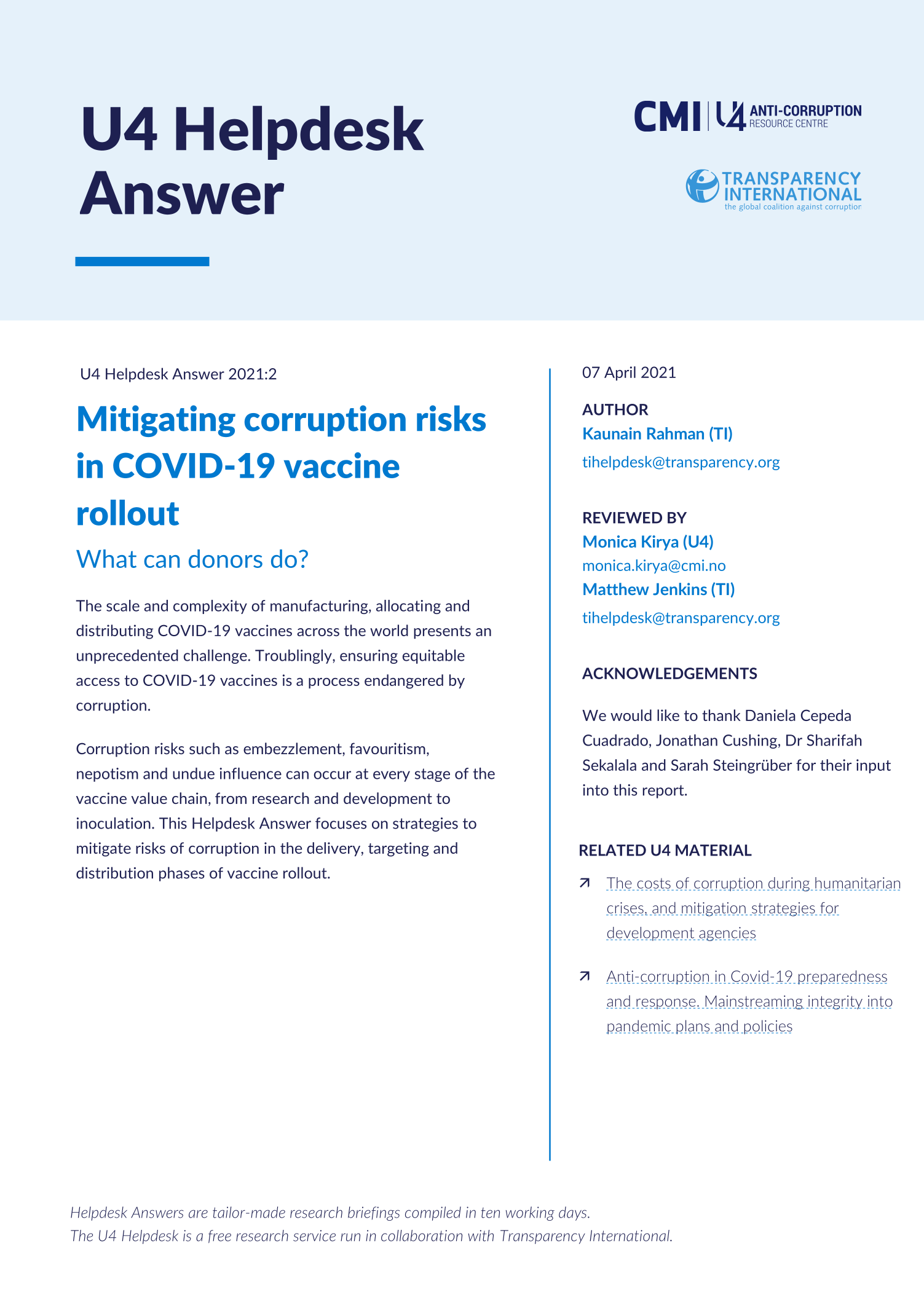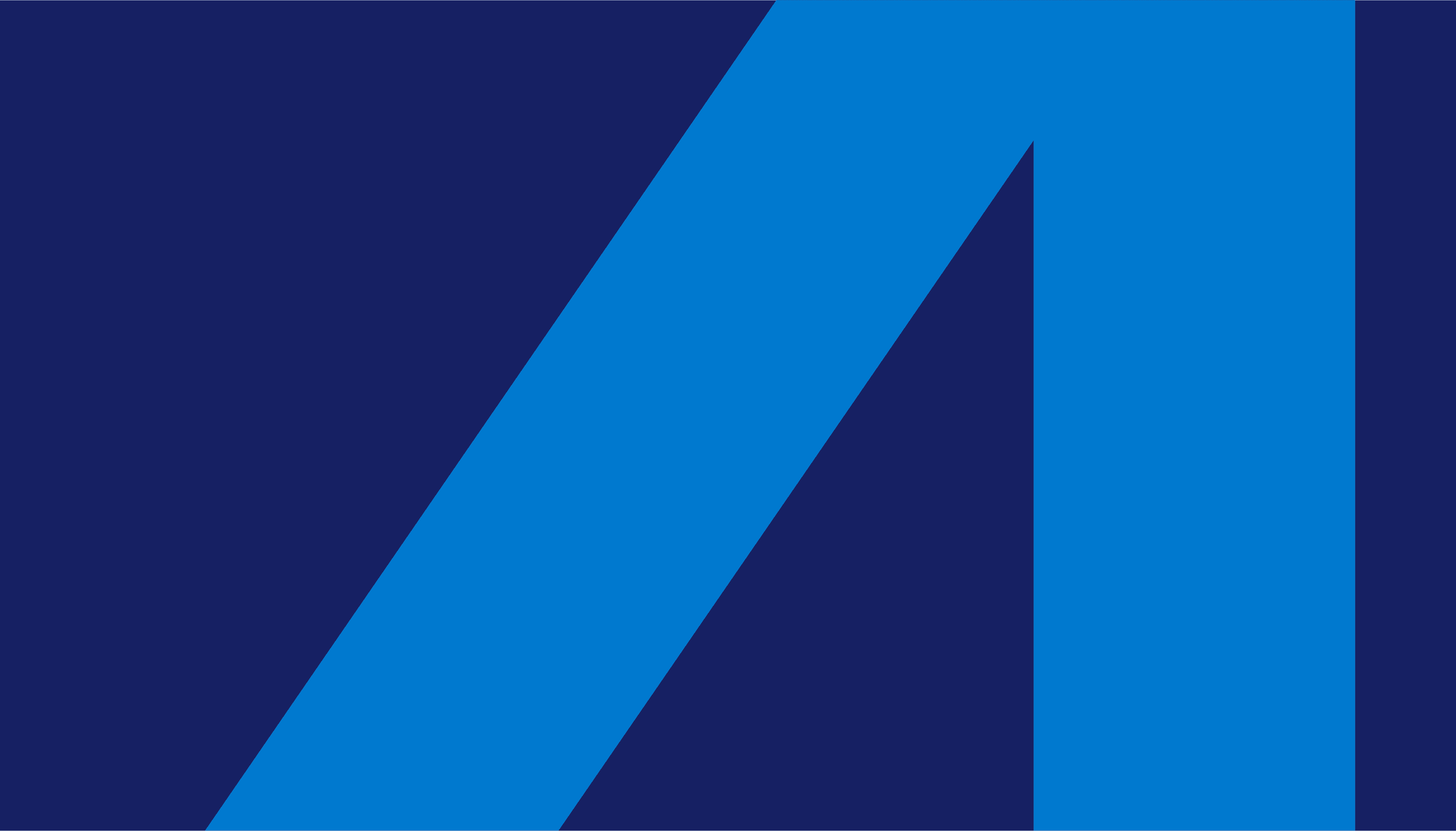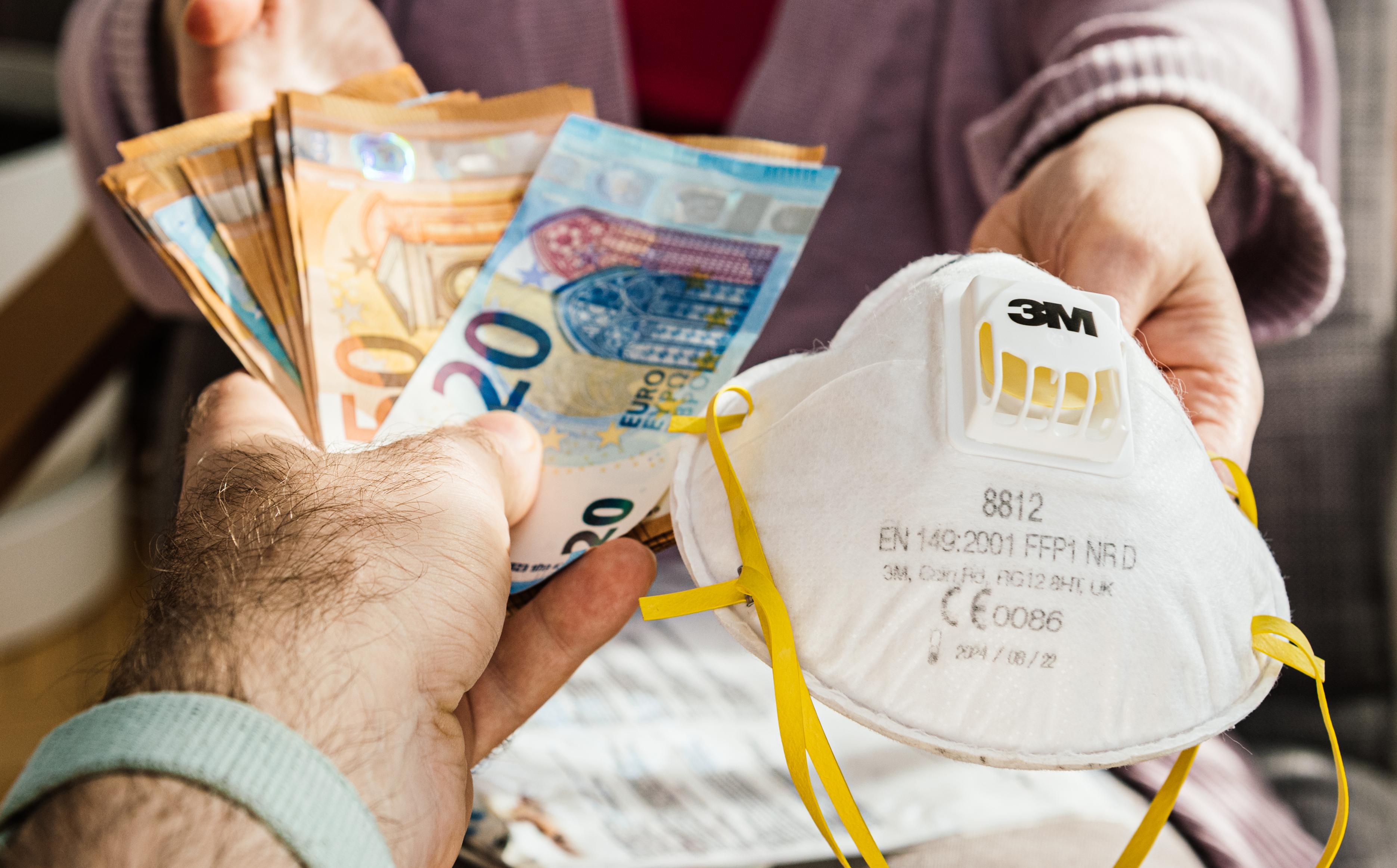Main points
- The nature and scale of the Covid-19 vaccine rollout makes oversight difficult, which exacerbates corruption risks in the distribution, targeting and delivery of vaccines. These risks include nepotism, favouritism, embezzlement, conflict of interest, undue influence, bribery and leakages in resources intended for the vaccine rollout.
- Several ongoing initiatives to tackle these corruption risks are taking place in several countries. This paper extrapolates from these to consider interventions that could be relevant for donor agencies.
- Donors can take a number of short-term measures, including supporting transparency initiatives and helping to strengthen monitoring and reporting mechanisms. Longer term strategies involve embedding anti-corruption into emergency responses and enabling environments conducive to accountability.


